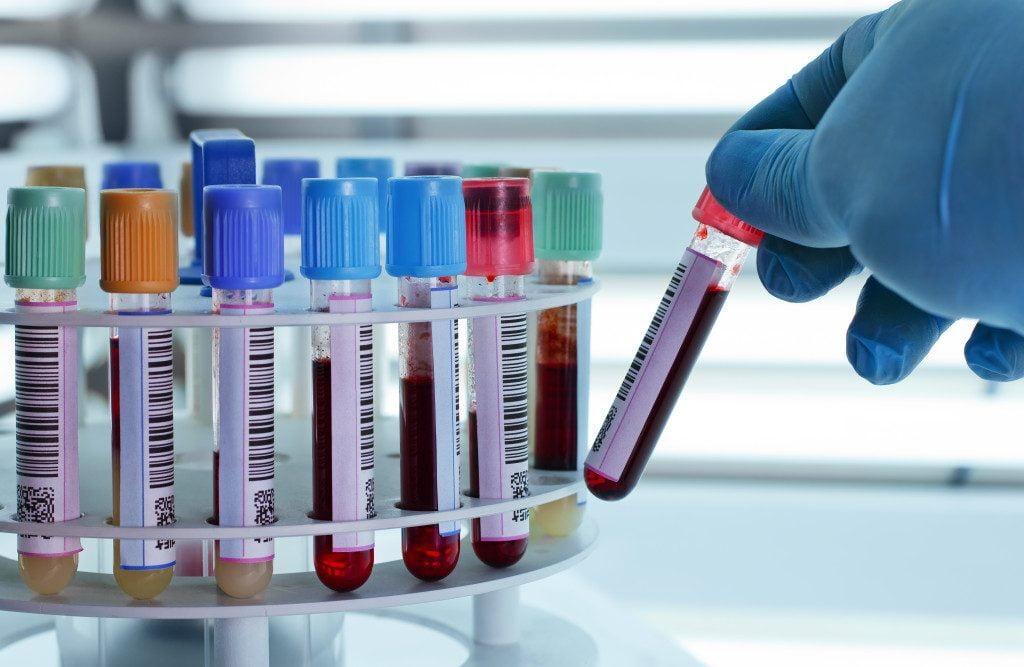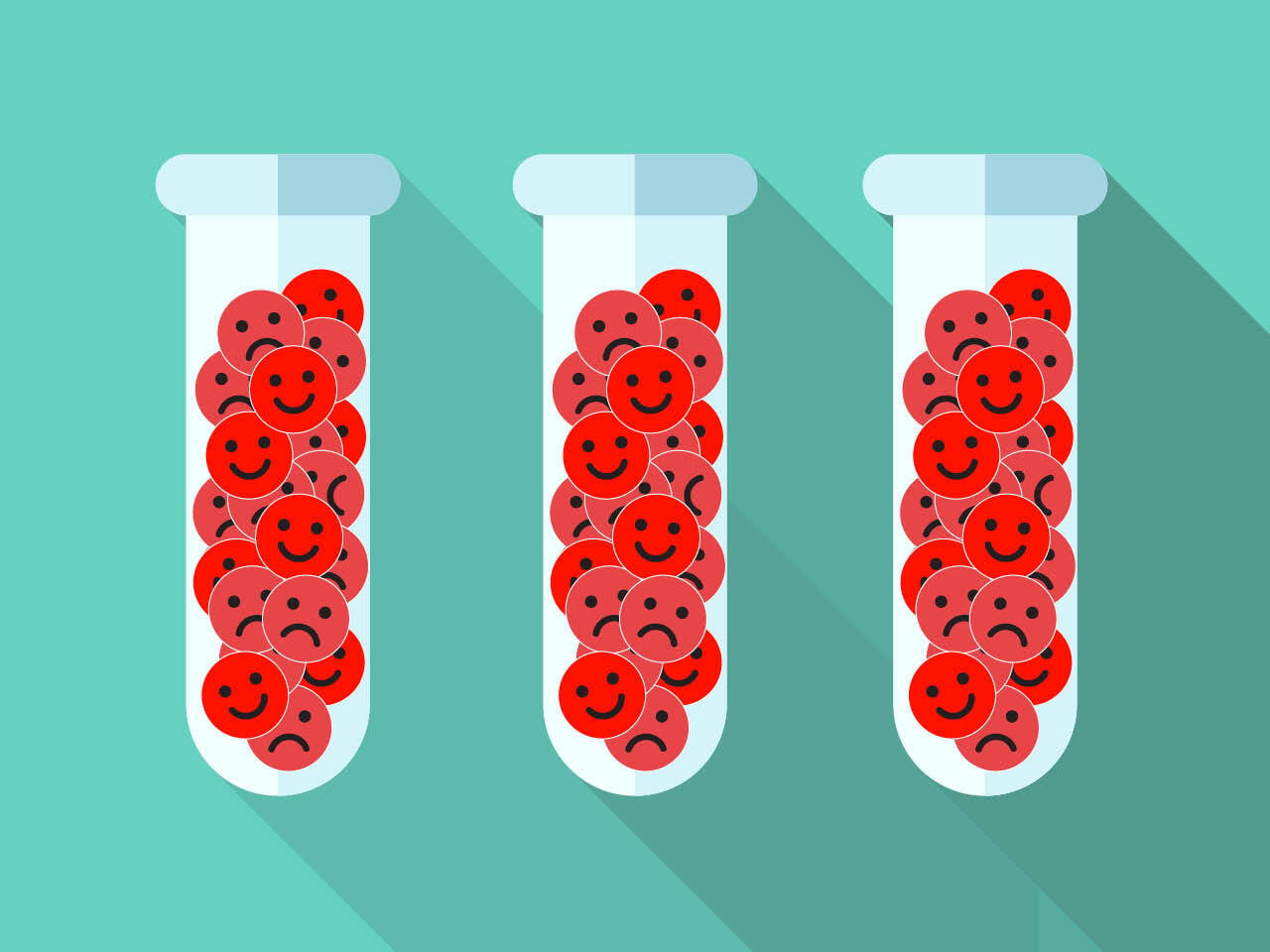Blood Test to Diagnose Psychiatric Disorders
Author: Mohammad Ali

Most people go to their family doctor a few times a year to undergo a routine checkup, which will sometimes include a blood test to screen for potential conditions (e.g., diabetes, heart disease, thyroid dysfunction) or assess their risk. Recent advancements in research has broadened the types of things that can be assessed using a blood test, such as different forms of cancer1.
One area of medicine that is lagging in terms of diagnosis through blood tests is psychiatric disorders. One of the most common disorders that is well-known among the public is major depressive disorder (MDD). Recently, there has been an increasing number of social movements raising awareness and advocating for more resources for individuals who are depressed. According to the World Health Organization, over 280 million individuals around the world experience depression and, along with anxiety, costs the world economy over 1 trillion USD each year2,3.

With psychiatric disorders such as MDD taking a considerable toll, why hasn’t a blood test been developed yet? The complexity of psychiatric disorders cannot be underestimated. The brain has over 86 billion different neurons and significantly more neural connections, which makes it an extremely complex organ to study4. In addition, many of the biological markers used to diagnose and study other diseases may have distinct patterns, which makes it possible to differentiate between different conditions.
In mood disorders, for example, there are similarities for a lot of blood-based biomarkers. For example, MDD and bipolar disorder (BD) share a lot of similar patterns in terms of inflammatory markers such as interleukin-6 and tumour necrosis factor5. In fact, BD is sometimes misdiagnosed as MDD since the two disorders share some similar symptoms (particularly in the depressive phase of BD)6. As a result, it becomes difficult to simply do a blood test to differentiate and diagnose different psychiatric disorders. Despite this, there is significant research still investigating methods to improve diagnosis and treatment conditions.
Studies investigating genetic markers of psychiatric disorders may open up opportunities to help clinicians diagnose individuals who are at risk of developing psychiatric disorders. For example, genome-wide association studies are correlating specific genes and gene polymorphisms with psychiatric disorders to potentially identify those at risk or even potentially help determine a diagnosis7. Furthermore, blood-based biomarkers may help with thorough treatment and medication dosage based on markers such as inflammatory and endoplasmic reticulum stress markers. This can have significant implications for the treatment of individuals with psychiatric disorders since the effectiveness of medications can vary between individuals.
Based on the complexity of psychiatric disorders, it is likely that a simple blood test will not suffice for a diagnosis, rather a comprehensive approach that integrates blood-based biomarkers, genetic markers, family history, and an algorithmic analysis of all the data may be the future of risk assessment and diagnosis.
1. Watson, J., Salisbury, C., Banks, J. et al. Predictive value of inflammatory markers for cancer diagnosis in primary care: a prospective cohort study using electronic health records. Br J Cancer 120, 1045–1051 (2019). https://doi.org/10.1038/s41416-019-0458-x
2. Institute of Health Metrics and Evaluation. Global Health Data Exchange (GHDx). https://vizhub.healthdata.org/gbd-results/
3. The Lancet Global H Mental health matters. Lancet Glob Health. 2020;8(11):e1352. doi: 10.1016/s2214-109x(20)30432-0
4. Pakkenberg B, Gundersen HJ. Neocortical neuron number in humans: Effect of sex and age. J Comp Neurol. 1997;384:312–20
5. Goldsmith DR, Rapaport MH, Miller BJ. A meta-analysis of blood cytokine network alterations in psychiatric patients: comparisons between schizophrenia, bipolar disorder and depression. Mol Psychiatry. 2016 Dec;21(12):1696-1709. doi: 10.1038/mp.2016.3
6. Carvalho AF, Firth J, Vieta E. Bipolar Disorder. N Engl J Med. 2020;383(1):58-66.
7. Mallard TT, Linnér RK, Grotzinger AD, Sanchez-Roige S, Seidlitz J, Okbay A, de Vlaming R, Meddens SFW; Bipolar Disorder Working Group of the Psychiatric Genomics Consortium; Palmer AA, Davis LK, Tucker-Drob EM, Kendler KS, Keller MC, Koellinger PD, Harden KP. Multivariate GWAS of psychiatric disorders and their cardinal symptoms reveal two dimensions of cross-cutting genetic liabilities. Cell Genom. 2022 Jun 8;2(6):100140. doi: 10.1016/j.xgen.2022.100140.